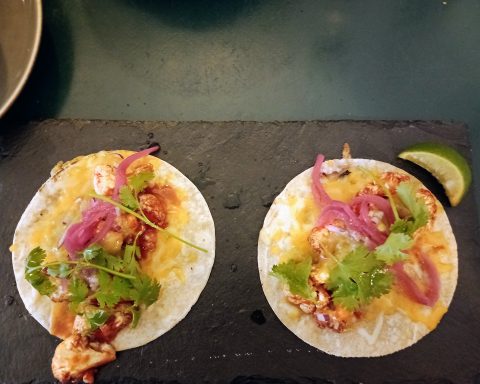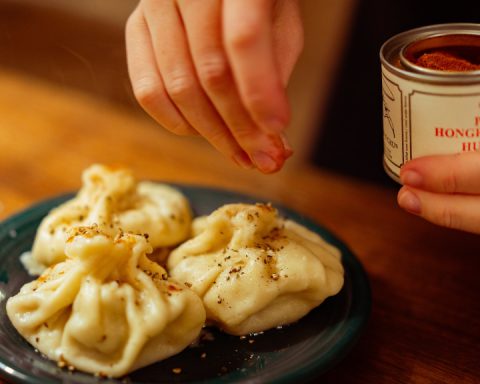Comfort food is usually a hearty and simple dish people associate with home. It invokes nostalgia and warm feelings – “comfort.”
My comfort food by this definition is nothing from my childhood or typically from my homeland of Brazil, though. It’s not local to anywhere I’ve lived.
But who knows what’s really “foreign” or “local” nowadays? There has been so much hybridization and trade in human history, although nations and peoples tend to claim brands to define them and set them apart from others. “This is ours.” And “this” includes food, of course.
Fellow Brazilians abroad tell me about how they miss “good” rice and beans, or a “real” feijoada (which is melange of foreign influences in our country of immigrants). Others brag about how moving away from their homeland, they’ve still managed to eat the “real deal” regularly, by craftily finding “Brazilian” beans in a speciality store tucked away somewhere, and cooking them. Or something to that effect.
Personally, I don’t usually cook anything that takes more than 15 minutes, much less stuff that has to be soaked overnight (the horror). My comfort food, then, must come out fast, and preferably without my having to cook.
My comfort food has creamy coconut, curry and chilli sauce, meat or something that imitates it, rice, assorted veggies and onion crumbs. It always tastes the same.

It’s “Asian style” food. I usually eat it at Vietnam Restaurant, at Petersbogen in Leipzig. It invariably comes out in a few minutes, with its invariable taste. They list it in German, calling it “Tagesangebot A.” A semi generic daily special.
I’ve eaten similar dishes at other restaurants, quite often, including the little Vietnamese-owned food stand near my house. It’s cheaper there, and also comes out very quickly.
The reason why I like it so much, even crave it, and feel especially warmed by it, I can’t really tell. I’d probably have to do quite a bit of soul searching to find an answer.
I never really liked to drink coconut water, though it’s associated with Brazilian beaches. I don’t have Asian ancestry that I know of. Never been to Southeast Asia, either. Been to the Far East once, to China, but only for a couple of weeks – and I was already a fan of Tagesangebot A then.

Chilli has been an acquired taste. Only in adulthood did I learn to like spicy food, or tried curry at all. I didn’t like onions for a long time, and the tofu I sometimes replace the chicken with in my order was not in my vocab until well after I left Brazil as a teenager.
Perhaps this preference has something to do with the Asian fast food buffets I visited at malls once my family and I moved to the US. The mounting heap of sweet and sour and sticky orange chicken on fried rice that was my default food with friends and family. It always tasted the same and was super greasy and fatty.
The “comfort food” I get in Leipzig is of better quality, and I like to think my palate has become more refined since then. I have also become more of an adventurous eater with my travels and moves over the years.
However, I like that Tagesangebot A has never changed over the four years I’ve been seeking it out regularly, while so many other important elements in my life have. It’s stable, it’s there for me when I need it, even when I’m in a hurry, which is often… and that’s comforting.








